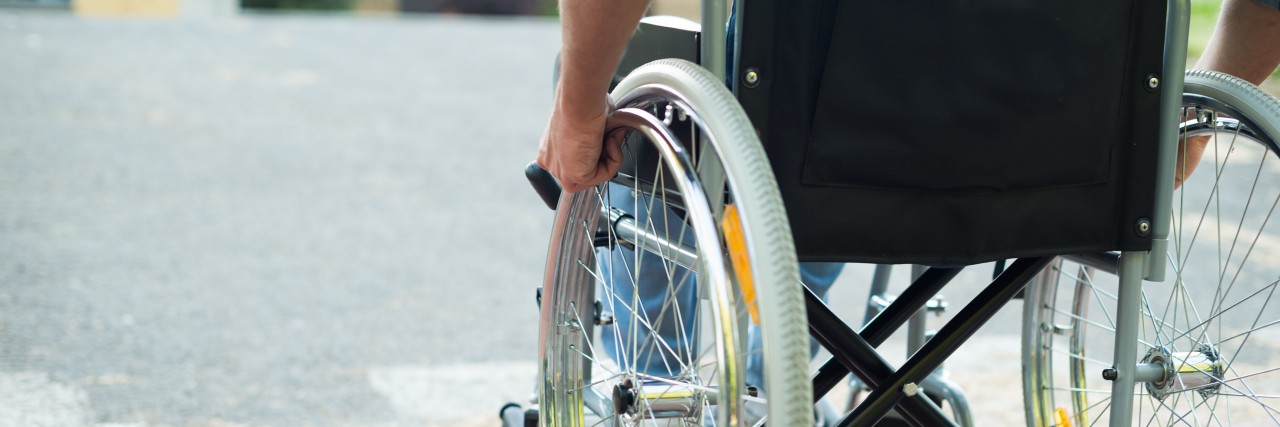Since my condition has progressed and I can no longer do things I used to do, my attitude changed. I noticed things I say to others with conditions like my own do not go down as well with “healthy people.”
When I say I’m a “crazy cripple lady,” people tell me “You can’t say that!” I don’t understand why not? I would never call another that (unless they find it amusing, like me.) It’s a thing that helps me cope with how much my life has changed. I used to run, hike, geocache for hours on end. I used to work, study, go to the pub. My conditions aren’t a separate thing. They interact with almost every single element of my life.
To you, my comments may seem fatalistic or insulting, but to me, they are my coping mechanism. Just as after a funeral people tell jokes and stories, this is how I and many others cope with changes in our lives.
My partner has ulcerative colitis. He has been flaring badly for over a year; a day without blood is odd to him now. Because of his condition, his chances of cancer are increased. To deal with this, he jokes about it. He is not joking about cancer and people who struggle with it. He is coping with what could be very real in his future.
Being told we are not allowed to do this helps nothing. You may feel good telling us not to laugh about such serious matters, but you might have snatched a coping mechanism that helps us deal every single day with what you cannot bear to hear about for a few minutes.
I realized I needed to talk about this after negative comments about my rabbit. A few months ago, his back legs stopped working. He is in a nappy (diaper) and his legs are wrapped as damage was done before a vet bothered to tell us. We chuckle about him being in a nappy with pink bandaged legs. I’ve been told I’m being cruel… but really, telling a person in a wheelchair to give up on a rabbit because his back legs were not working? He is healing, he has movement back, but the amount of people who said “just put him down” is staggering. He is in no pain, he still moves around, he eats, he plays, he cuddles, he punches me when I don’t play quick enough. So why would I end his life because his care got harder?
People tell disabled people to look past their disabilities, yet often see us as things they can use to feel better. When someone helps me with my wheelchair, they may feel good and think they did a good deed. But did they ask? It’s surprising how many people take control of my chair without asking. When my mobility is suddenly under the control of a stranger, it’s terrifying and leaves me feeling helpless.
Please don’t forget, this is our life. How we cope is not for you to “correct.” Instead of taking control and deciding for us, how about asking?
We want to hear your story. Become a Mighty contributor here.
Image via Thinkstock.

